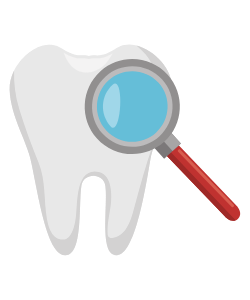Here are two signs of an outstanding dentist.
They don't shy away from discussing the downsides of dental treatments (and they suggest ways to mitigate them)
Every dental treatment, regardless of how wonderfully life-changing its effects are, has its downsides. For example, fitting dental implants is a highly effective way to restore a person's smile after they've lost some of their real teeth and can even cure the speech issues that can be induced by the missing teeth. However, they are also expensive, and there is a possiblity of the patient's body rejecting them.
A truly good dentist will not be vague about or even omit these downsides when talking about treatment options to their patients but will instead discuss them very frankly. This transparency can aid their patients in making decisions that are right for them and can also ensure that they are not too taken aback or distressed if they encounter some of these downsides.
The dentist should also offer their patients practical tips on how to mitigate these treatment-related issues. For example, if a treatment that a patient would benefit from is too costly for them, the dentist might offer information about dental payment plans they could sign up for or dental insurance plans that might cover this treatment.
They are considerate of their patients' phobias
Outstanding dentists will also go to great lengths for patients of theirs who have phobias that make their dental treatments frightening for them. The dentist might, for example, have a long pre-appointment consultation with a patient so they can better understand which aspects of dental clinic visits distress them (such as the medicinal smells, the dental equipment noises or the experience of getting injected) and then work with their patient to devise a plan to make these elements of the visit less stressful.
For instance, if the patient's phobia is caused by the smell of the antiseptics and the mouthwash, the dentist might tell them to bring a tissue soaked in essential oils with them and to lay this tissue over their nose during the treatment to mask the fear-inducing scents of the dental treatment room.
Similarly, they might tell the patient to bring a pair of wireless earphones with them and play soothing songs to disguise the dental equipment sounds. These efforts to keep their patient calm could allow that individual to not only feel safer during their appointments but might also gradually minimise the intensity of their phobia and thus make their future dental treatments far easier.
To learn more, contact a dentist.
Share
